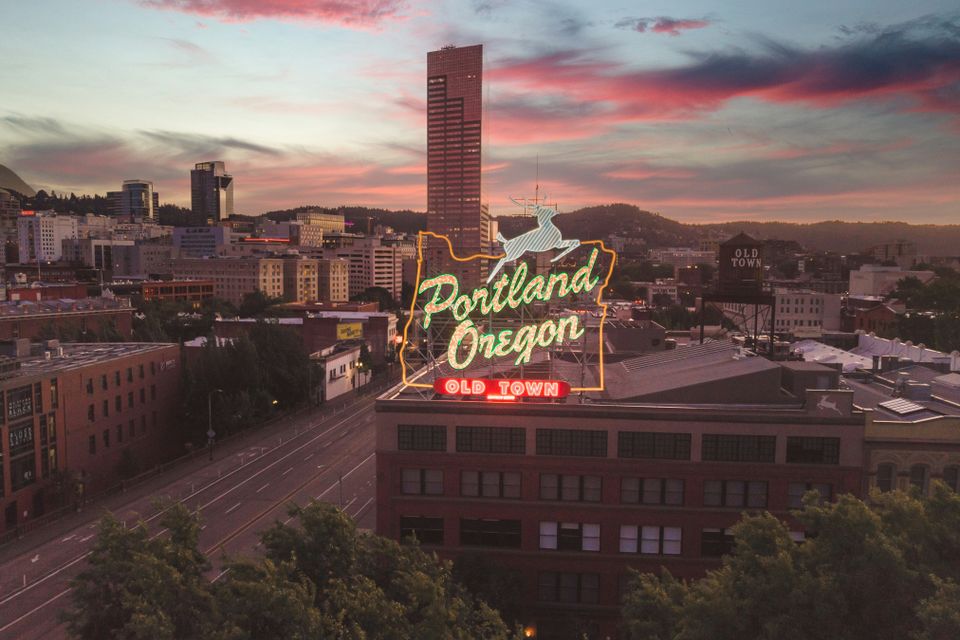When everything is happening all of the time, it’s easy to either stay scrolling to stay informed or to stay distracted. It’s ok and normal for that to be your response, but that response to continuing to live in “unprecedented times” isn’t very sustainable. For those scrolling to stay informed, remember that algorithms prioritize engagement- and engagement is measured by the amount of time people spend with content, whether there was interaction in the content beyond a basic click, and whether people talked about the content. These systems are also designed to maximize your exposure to advertising- which means they want to keep you on your device.
Studies have shown that algorithms tend to reinforce existing patterns - which makes it easier to get stuck in a negative news spiral, hear untrue or actively divisive information, and drives people to seek connection in ways that feel validating in the moment- whether or not that content is helpful for folks long term.
If you are terminally online, it is worth taking the time to do an “internet content check in” and answer these questions for yourself:
- Do you feel better or worse after you’ve been online?
- Are you completing activities offline that you want to get done?
- Does the content you engage with help you be a better version of yourself?
- Are you moderating the content you engage with to avoid things that are always distressing to you?
- Are you making sure that you’re seeing content that has viewpoints that you don’t routinely come into contact with/ avoiding an echo chamber?
- How do you make sure information you share is true?
These are all open ended questions with no right or wrong answers. Y’all know I love the internet, and I’ll freely admit that I have been online since AIM messaging was a thing. I have friends all over the world because of social media, but I also am careful about how my algorithmic feed works because curating my internet space is really important for my mental health. You could use these same question ideas to look at anything you are spending time on- reading, games, social spaces- to make sure you are showing up in the world the way that you want to.
Living in a war torn hell: practical tips for sound dampening and living in unprecedented times:For those of us who live in neighborhoods that are now circled by helicopters on a regular basis, noise pollution is a huge problem for a lot of different aspects of health.
There’s plenty of evidence that noise pollution can disrupt your sleep, increase your blood pressure, give you more psychological stress, and decrease your quality of life. If you, like me, are sleep deprived and cranky about it,
there are some things you can do to try to sleep through all the extra noise.
-
Take a minute to see if some of the noise is changeable. If the choppers are shaking your dishes, you can put paper towels or wash cloths between them to make them rattle less. You might need to move your cups further apart from one another, too. If a picture is rattling on the wall, it might be worth taking it down for some extra sleep.
-
If you’re able to, add a noise barrier. Put bubble wrap or cardboard in your windows, or if you are able to, fully soundproof your sleeping space. (Make sure there’s still a fire alarm in your sleeping area)
-
If you know sleep is going to be a challenge, it might be worth an office visit to discuss medications or supplements that may help you sleep through the noise.
Folks that are going protesting, I’m going to reiterate protest safety planning I emailed about in April, with the added caveat that the illegal detainment is happening actively, and that ICE not only prevented emergency healthcare from happening in a timely manner, they threatened to shoot EMTs this week. They also detained a preschool mom with no charges, shipped her across state lines, and delayed her arraignment for no given reason. The unprecedentedness of the times is accompanied by openly illegal actions that are hurting our community, and you need to be prepared for this to continue to happen until we make laws matter again.
Here are things I want you to think about granted upcoming and ongoing protests:
- Is this a safe activity for you on the day that it occurs? For those who (like me) are on the line of more disabled, will the walk be a distance that your heart/lungs/etc be able to do? If you were detained- and recall that there was definitely illegal detainment of peaceful protesters and lawsuits afterwards- would a disruption to your normal medications be life threatening?
- Do you have a plan of who knows where you are, who you would contact if you needed to call someone for any urgent situation, who would be a support while you're there?
- If this is a new activity for you, are you familiar with basic tactics for crowd monitoring via cell phone data, how to recognize a kettle, what to do if you get tear gassed?
By the people, for the people mean that we need to be involved. There are lots of ways to be involved, and lots of ways to stay safe. Here are some resources you may need:
Riot Medicine : downloadable guide to tactics and emergency first aid.
Human Rights Campaign: tips on preparing for and going to a protest
Even more resources: collated by this blog with good info and citations for everything. (While I have been on tumblr since the deep magic was written, I don't know this person. Their advice in this post is solid, I did not vet the rest of their content.)




